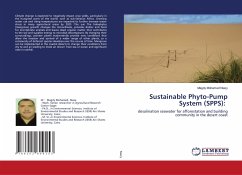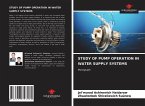Climate change is expected to negatively impact crop yields, particularly in the hungriest parts of the world, such as sub-Saharan Africa. Growing water use and rising temperatures are expected to further increase water stress in many agricultural areas by 2025 .The use The halophytes (mangrove) growth changes the microclimate, provides shelter and food for invertebrate animals and leaves dead organic matter that contributes to the soil and supplies energy to microbial decomposers. By changing their surroundings, pioneer plants inadvertently provide new conditions that allow the invasion and survival of a wider range of other plants, so a community of deferent species develops over the course of time. Mangrove can be implemented in the coastal deserts to change their conditions from dry to wet air leading to moist air drown from sea or ocean and significant raise in rainfall.
Bitte wählen Sie Ihr Anliegen aus.
Rechnungen
Retourenschein anfordern
Bestellstatus
Storno








